Go back
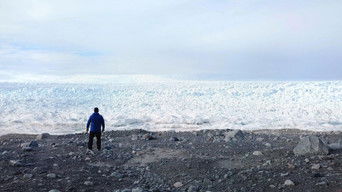
Polar Extremes
Episode number: 1
Overview: Following a trail of fossils found in all the wrong places–beech trees in Antarctica, redwoods and hippo-like mammals in the Arctic–NOVA uncovers the bizarre history of the poles, from miles-thick ice sheets to warm polar forests teeming with life.

Dog Tales
Episode number: 2
Overview: Dogs have long been dependable companions by our sides. But it wasn’t always that way, and a look at their closest living relative, the wolf, makes it clear why. Research into dog domestication and intelligence offers clues into the human-dog relationship. And analyzing dogs’ brain activity and genes may even help answer whether dogs are in it for the food—or if they really love us.
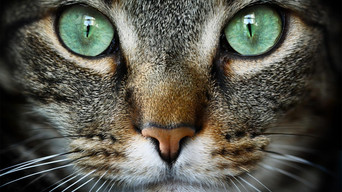
Cat Tales
Episode number: 3
Overview: Worshipped as a goddess, condemned as satanic, and spun into a stunning array of breeds, cats have long fascinated humans. But did we ever really domesticate them? And what can science tell us about our most mysterious companions?

Mysteries of Sleep
Episode number: 4
Overview: From fruit flies to whales, virtually every animal sleeps. But why? Why do we need to spend nearly a third of our lives in such a defenseless state? Scientists are peering more deeply into the sleeping brain than ever before, discovering just how powerful sleep can be, playing a role in everything from memory retention and emotional regulation to removing waste from our brains.

Cuba's Cancer Hope
Episode number: 5
Overview: When the U.S. trade embargo left Cuba isolated from medical resources, Cuban scientists were forced to get creative. Now they’ve developed lung cancer vaccines that show so much promise, some Americans are defying the embargo and traveling to Cuba for treatment. In an unprecedented move, Cuban researchers are working with U.S. partners to make the medicines more widely available.

The Truth About Fat
Episode number: 6
Overview: The mysteries of fat and its role in hormone production, hunger and pregnancy.
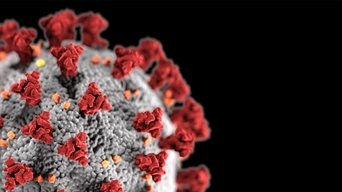
Decoding COVID-19
Episode number: 7
Overview: The coronavirus SARS-CoV-2 has upended life as we know it in a matter of months. But at the same time, an unprecedented global effort to understand and contain the virus—and find a treatment for the disease it causes—is underway. Join doctors on the front lines of the fight against COVID-19 as they strategize to stop the spread, and meet the researchers racing to develop treatments and vaccines.
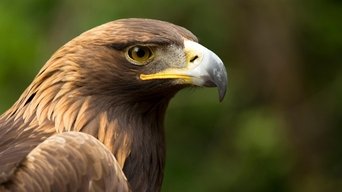
Eagle Power
Episode number: 8
Overview: Eagles dominate the skies. But what makes these predators so special? Researchers study one special bird—and stunning up-close footage reveals her exceptional strength, eyesight, and flying skills. With intimate access to a new bald eagle family, NOVA takes you into the nest to witness the drama of chicks struggling to survive.
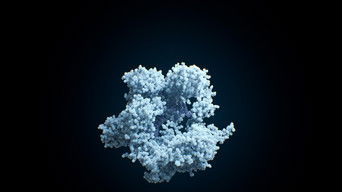
Human Nature / Gene-Editing Reality Check
Episode number: 9
Overview: With an extraordinary new technology called CRISPR, we can now edit DNA—including human DNA. But how far should we go? Gene-editing promises to eliminate certain genetic disorders like sickle cell disease. But the applications quickly raise ethical questions. Is it wrong to engineer soldiers to feel no pain, or to resurrect an extinct species?
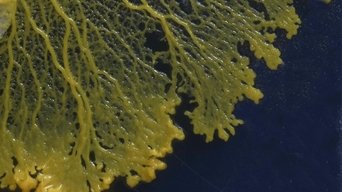
Secret Mind of Slime
Episode number: 10
Overview: Scientists investigate the bizarre “intelligence” of slime molds, which appear to learn and make decisions—without a brain. These cunning, single-celled blobs can navigate mazes and create efficient networks. Can they also redefine cognition?

A to Z: The First Alphabet
Episode number: 11
Overview: Writing shaped our world and the rise of human knowledge, from the trading of goods to tales of ancient goddesses and kings. Follow the evolution of the written word, from 4,000-year-old carvings in an Egyptian turquoise mine to modern-day alphabets.

A to Z: How Writing Changed the World
Episode number: 12
Overview: Just as writing changed the course of human history, the evolution of paper and printing revolutionized the spread of information. The printing press kicked off the Industrial Revolution that fast-tracked us to the current digital age. But as the 4,000-year-old tradition of penmanship falls out of favor, should we consider what might be lost in this pursuit of ever more efficient communication? (Premiered September 30, 2020)
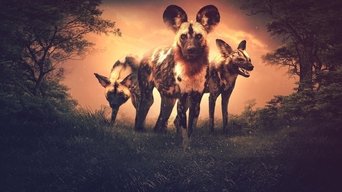
Nature's Fear Factor
Episode number: 13
Overview: For animals in Mozambique’s Gorongosa National Park, the normal balance of competition and predation was upended when a war wiped out the top predators. The remaining animals didn’t simply grow in numbers—they began behaving in unusual ways, veering outside their typical territories and feeding patterns. Could it be that it’s not just predators’ kills that keep other populations in check, but also the fear they inspire? NOVA joins a team of scientists as they reintroduce wild dogs to Gorongosa to find out if restoring the park’s “landscape of fear” can restore balance to an entire ecosystem. (Premiered October 14, 2020)
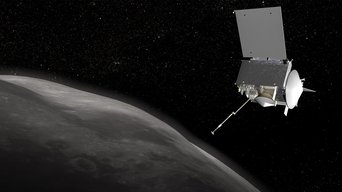
Touching the Asteroid
Episode number: 14
Overview: In October 2020, a NASA spacecraft called OSIRIS-REx attempts to reach out and grab a piece of an asteroid named Bennu to bring it back to Earth. The OSIRIS-REx team has just three chances to extend its spacecraft’s specialized arm, touch down for five seconds, and collect material from the surface of Bennu. But if they can pull it off, scientists could gain great insight into Earth’s own origins—and even learn to defend against rogue asteroids that may one day threaten our planet. (Premiering October 21, 2020 at 9 pm on PBS)
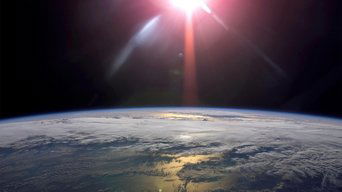
Can We Cool the Planet?
Episode number: 15
Overview: As global temperatures continue to rise, scientists are wondering if we need solutions beyond reducing emissions. Enter geoengineering. From sucking carbon straight out of the air to physically blocking out sunlight, the options may seem far-fetched. But as time runs out on conventional solutions to climate change, scientists are asking the hard questions: Can geoengineering really work? How much would it cost? And what are the risks of engineering Earth's climate? (Premiering October 28 at 9 pm on PBS)
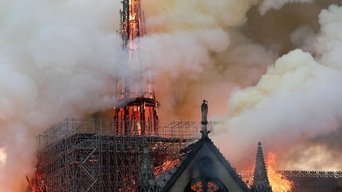
Saving Notre Dame
Episode number: 16
Overview: When the roof of Notre Dame Cathedral erupted in flames in April of 2019, firefighters battled for nine grueling hours to save the historic landmark. Still, Paris came alarmingly close to losing more than 800 years of history. Now engineers are in a different race against time: to rebuild the roof and secure the medieval structure of Notre Dame. Underneath the charred scaffolding and vaulted ceilings of the cathedral, scientists study the components of Notre Dame’s iconic structure to puzzle out how best to repair it. (Premiering November 25 at 9 pm)